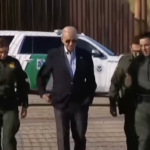The buildings which house Brazil’s executive and legislative branches were stormed by pro-Jair Bolsonaro demonstrators on Sunday. Protestors were demonstrating against the results of the election wherein President Lula da Silva won. Demonstrators broke into the National Congress as well as the Presidential Palace.
Planalto Palace was filled with hundreds of so-called “Bolsonarists” who support the former president. Metropoles, a Brazilian outlet, reports that supporters “broke through blocks that prevent the entry of non-accredited people and entered the Planalto parking lot.”
Bolsonaro is reportedly in Florida as the scene unfolds.
🚨 Apoiadores de Bolsonaro, que não aceitam o resultado das eleições de 2022, invadem e causam destruição no Palácio do Planalto. pic.twitter.com/m4ZiV6ddGH
— Metrópoles (@Metropoles) January 8, 2023
Footage shows protestors outside of the congressional building, climbing on ramps.
AGORA: O povo invadindo o Palácio do Planalto pic.twitter.com/8s9rltgKBD
— Eliane 🌻 (@ElianeScherb) January 8, 2023
Protestors are reportedly calling for military intervention to overthrow President Lula, as they believe the election was fixed.
Bolsonaro spoke on November 1 where he said that the transition of power would continue as normal. He made that announcement two days after the election results were announced, amid widespread speculation he would contest the victory.
Results showed that Da Silva won by 50.83 to 49.17. The two candidates went head to head in a first round of voting on October 2. Neither gained more than 50 percent of the votes, which led to a runoff vote.
Over 156 million people were eligible to vote in the election. The announcement of those election results sparked protests by millions of Brazilians who used their vehicles to clog infrastructure such as highways and streets, as well as important bridges.
President Joe Biden has acknowledged the results of the election and has congratulated Lula, in a statement saying “President Biden commended the strength of Brazilian democratic institutions following free, fair, and credible elections. The two leaders discussed the strong relationship between the United States and Brazil, and committed to continue working as partners to address common challenges, including combatting climate change, safeguarding food security, promoting inclusion and democracy, and managing regional migration.”










